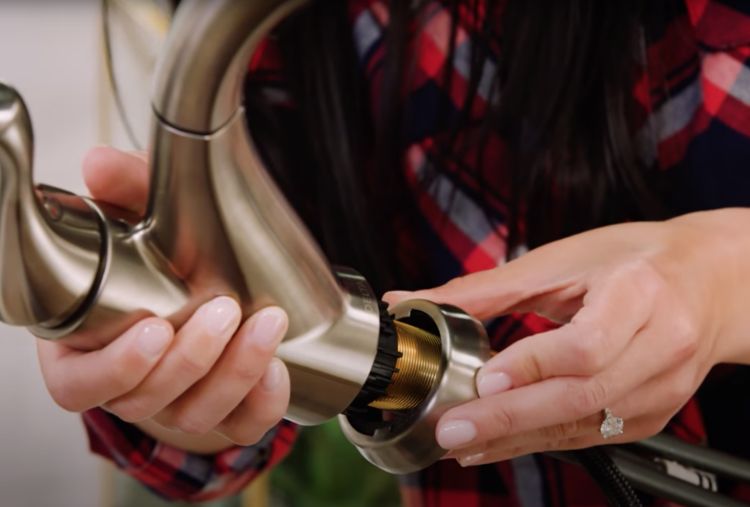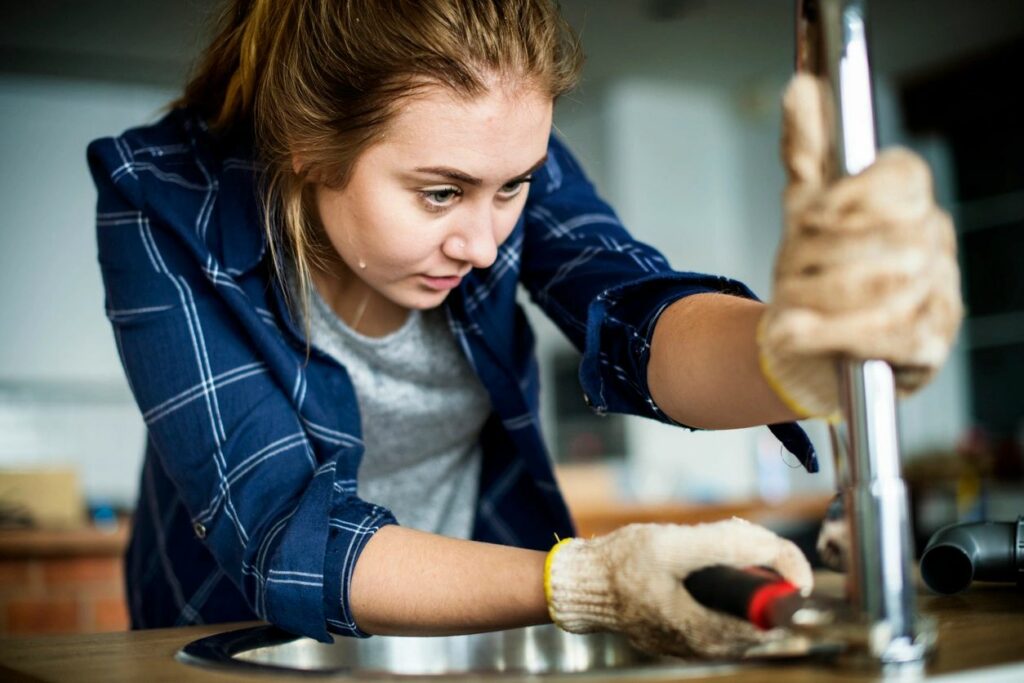Which It's Vital to Resolve a Leaking Faucet
Which It's Vital to Resolve a Leaking Faucet
Blog Article
Just how do you actually feel in regards to How to Fix a Dripping or Leaky Faucet ?

Dripping taps may seem like a minor aggravation, but their effect exceeds simply the annoyance of the sound. From wasting water to incurring unneeded economic prices and health and wellness risks, ignoring a dripping faucet can result in numerous consequences. In this article, we'll look into why it's important to resolve this typical family issue promptly and effectively.
Wastage of Water
Environmental Influence
Trickling taps add substantially to water wastage. According to the Environmental Protection Agency (EPA), a solitary tap trickling at one drip per secondly can lose more than 3,000 gallons of water annually. This not just strains water sources yet likewise affects communities and wild animals based on them.
Step-by-Step Overview to Taking Care Of a Dripping Faucet
Tools Needed
Prior to trying to take care of a trickling faucet, gather the needed tools, consisting of an adjustable wrench, screwdrivers, replacement parts (such as washing machines or cartridges), and plumber's tape.
Typical Tap Issues and Their Solutions
Identify the type of tap and the particular concern causing the drip. Common problems include worn-out washing machines, rusty shutoff seats, or damaged O-rings. Describe maker directions or on the internet tutorials for step-by-step advice on fixings.
Financial Prices
Boosted Water Bills
Beyond the environmental effect, dripping faucets can pump up water costs considerably. The collected wastefulness with time translates right into higher energy expenditures, which could have been prevented with timely repair services.
Possible Property Damage
Furthermore, long term trickling can bring about harm to components and surface areas bordering the faucet. Water buildup can trigger discoloration, corrosion, and even architectural concerns if left ignored, leading to extra repair service costs.
Wellness Concerns
Mold and Mildew Development
The constant existence of wetness from a leaking faucet creates an optimal setting for mold and mildew and mildew development. These fungi not only endanger interior air quality however additionally position health dangers, specifically for individuals with respiratory conditions or allergic reactions.
Waterborne Conditions
Stagnant water in leaking faucets can end up being a breeding place for bacteria and various other microorganisms, boosting the threat of waterborne conditions. Contaminants such as Legionella bacteria thrive in stationary water, possibly bring about severe health problems when ingested or breathed in.
Do it yourself vs. Professional Repair
Advantages and disadvantages of DIY Fixing
While some may try to repair a trickling faucet themselves, do it yourself repair work feature their own collection of challenges. Without correct knowledge and devices, do it yourself attempts can exacerbate the problem or lead to insufficient fixings, lengthening the issue.
Advantages of Hiring a Professional Plumber
Hiring an expert plumber ensures that the underlying source of the trickling tap is dealt with effectively. Plumbing professionals possess the competence and devices to identify and fix tap issues effectively, saving time and lessening the risk of additional damages.
Environmental Duty
Specific Contribution to Conservation
Taking responsibility for fixing dripping taps lines up with more comprehensive initiatives towards water preservation and environmental sustainability. Every individual's actions collectively make a significant effect on protecting valuable sources.
Lasting Living Practices
By prioritizing prompt repairs and adopting water-saving practices, individuals add to sustainable living methods that benefit both existing and future generations.
Preventive Measures
Normal Upkeep Tips
To avoid trickling faucets, carry out routine upkeep such as cleaning up aerators, evaluating for leaks, and replacing damaged components quickly. Furthermore, take into consideration setting up water-saving tools or updating to a lot more efficient fixtures.
Importance of Prompt Repair Works
Addressing trickling faucets as soon as they're seen avoids additional water wastage and potential damages, ultimately saving both water and cash over time.
Impact on Home Worth
Understanding of Well-Maintained Building
Keeping a home in good condition, including resolving upkeep concerns like dripping faucets, enhances its viewed worth and worth amongst potential purchasers or occupants.
Influence on Resale Worth
Features with well-maintained plumbing components, consisting of taps, command greater resale worths in the real estate market. Addressing leaking faucets can contribute to a favorable impact throughout residential or commercial property evaluations and arrangements.
Conclusion
Dealing with a trickling tap surpasses plain benefit; it's an essential action towards conserving water, minimizing monetary prices, and protecting wellness and residential property. Whether through DIY repair services or expert assistance, taking action to repair dripping faucets is a small yet impactful method to advertise liable stewardship of sources and add to a much healthier, more lasting future.
How to Fix a Leaky Faucet: Step-by-Step Repair Guide
A leaky faucet may seem like a simple annoyance, but if it's not fixed promptly, that leak could cost hundreds to potentially thousands. From water damage to mold, mildew, and high water bills, even a tiny leak can be catastrophic if left unattended. Damage like this can even affect the overall value of your home, so it's important to take the right approach for leaky faucet repair. You may need the help of a plumber in some cases, but we've got a few tips you can try on how to fix a leaky faucet before calling the pros.
Four Faucet Types
When you're learning how to fix a leaky faucet, the first step is knowing what kind of faucet you're working with! There are four common types.
Cartridge Faucets
Cartridge faucets come in one- or two-handled varieties. In one-handled cartridge faucets, hot and cold water combines in a single cartridge. In the two-handled versions, hot and cold water are controlled separately and mixed in the faucet.
Ball Faucets
Ball faucets have a single lever you push up and down to adjust the pressure and rotate to change the temperature. A slotted metal ball controls the amount of water allowed into the spout.
Compression Washer Faucets
They're the oldest type of faucet, but they're still used in many homes — especially older ones. Compression faucets have two separate handles that, when turned, raise or lower the washer that seals a water valve. This valve stops water from flowing through the faucet when it is turned off.
Disc Faucets
Disc faucets rarely need to be repaired due to their maintenance-free design. The water flow is controlled by two discs — the upper one raises and lowers against a fixed lower disc, creating a watertight seal. If your disc faucet starts leaking, you may need to replace the seals or clean residue buildup from the inlets.
Fixing a Leaky Faucet
Step 1: Turn Off the Water
Whether you're learning how to fix a leaky bathtub faucet or how to fix a leaky kitchen faucet, always turn off the water supply to your working area when you're fixing a leak. The last thing you want is a flood added to your list of things to fix.
Look for the shutoff valves below your sink or around the tub and turn them clockwise to stop the water flow. If your faucet doesn't have shutoff valves, you may need to turn off the water for the whole house. Check to make sure it's off by turning the faucet on. If nothing comes out, you're ready to start the repair.
Step 2: Take Apart the Faucet
How you disassemble your faucet depends on the type of fixture you have. You can use a flathead screwdriver to remove the caps on top of the handle or handles for cartridge and compression faucets. Inside, you should see handle screws. Unscrew these with a screwdriver to remove the handle.
Disc- and ball-style faucets will typically have an inlet screw near the handle, and removing that will reveal the interior of the faucet.
Detach the Valve Stem
For cartridge- and compression-style faucets, you'll see the inner valve stem or cartridge once you remove the faucet handles. If you have a compression faucet, unscrew the brass valve stem. If you have a cartridge faucet, pull out the cartridge. If your cartridge has been in place for a while, it may require some tools or extra force to remove it due to mineral deposits.
Examine and Replace Parts
Once you've removed the parts, check them out to confirm what needs to be replaced. You may see corroded rubber washers, O-rings, stems, or cartridges. On a ball-style faucet, check the seats and springs for damage.
If you need to repair a leaky disc faucet, check the inlet and seals on the lower disc.
Once you determine what parts must be replaced, visit your local hardware store. Bring the damaged parts with you to ensure you can purchase the correct components to replace them.
Clean Valves and Faucet Cavity
If you've removed a stem or cartridge, you may notice mineral buildup in the faucet's threads. Use white vinegar to clean the valve seat by soaking it for a few minutes, then scrub it away with a soft toothbrush and rinse with warm water. You can also clean the interior of the faucet in the same way.
Reassemble the Faucet
Once your faucet is cleaned and the required parts have been replaced, it's time to reassemble it. Put the pieces back together and slowly turn the water supply back on. Doing this slowly is crucial because too much initial water pressure can damage the new hardware you've just installed.
https://homewarranty.firstam.com/blog/how-to-fix-leaky-faucet

Hopefully you liked our article on Water Dripping from Faucet: Why and How to Fix. Thanks a lot for spending some time to browse our article post. Make sure you take the time to share this write-up if you appreciated it. Thanks a lot for being here. Return soon.
Report this page